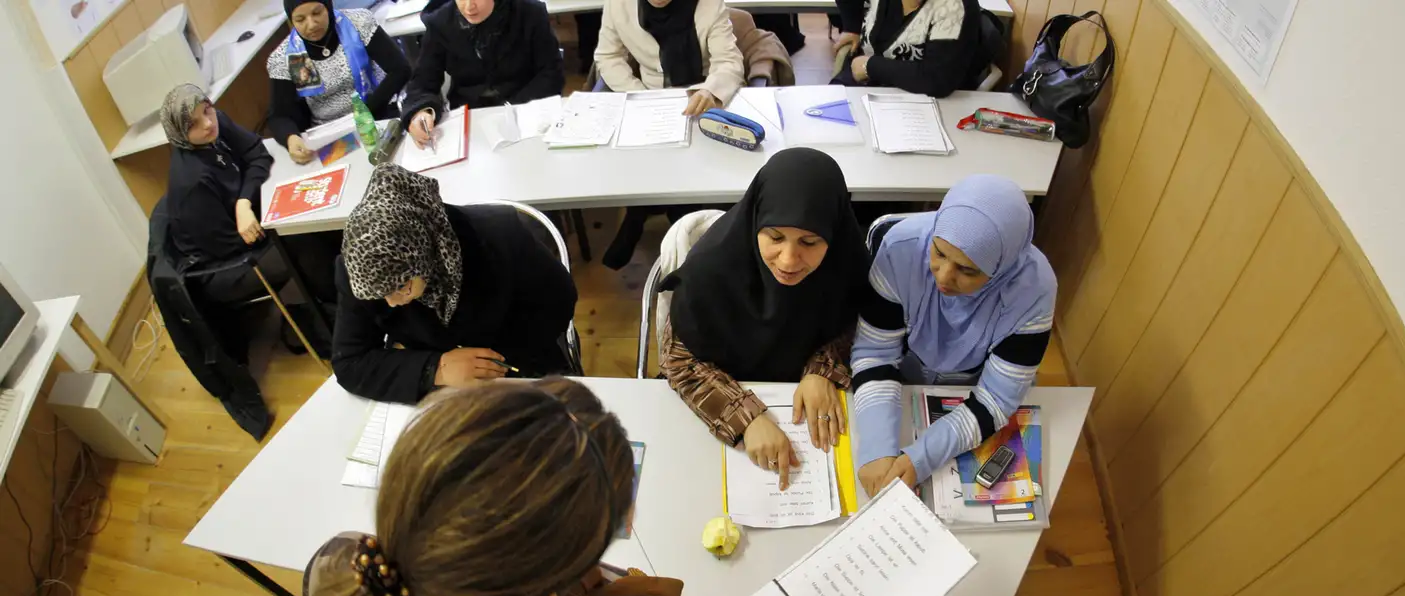Educational expert Nele McElvany recommended teaching German as a second language in primary and secondary schools. She advised the state of North Rhine-Westphalia to adopt German as a second language as a regular core subject in the state’s schools. The researcher emphasized the importance of teaching German from the very beginning to all students who need it.
McElvany believes that the model she proposes is better suited for children than the “welcome classes” approach, as language instruction should start from scratch, beginning with the letters. She stated, “This should be firmly established in primary and secondary schools. This model is more appropriate than special welcome classes or even individual solutions.”
The professor at the Center for Educational Research at the Technical University of Dortmund also suggested that German be taught as a second language to children from immigrant backgrounds, as well as to German children “who enter school with insufficient or even no German language skills.” McElvany stated, “German should be taught systematically, from scratch, as a standard subject for a large number of students.”
McElvany also criticized the welcome class model widely used in many German schools, citing studies showing that children in welcome classes face difficulties in learning German. She stated, “The language skills of children enrolled in welcome classes remained lower even after several years than those of children directly integrated into regular classes.”
She spoke about the importance of education for the integration of immigrants in Germany, noting that the welcome classes model was established with good intentions to help refugees integrate. She stated, “Despite the good intentions, this approach is challenging.” She also noted that children directly integrated into regular classes achieved better results than those who attended welcome classes.
The educational expert also praised the German education system, which has handled immigration well over the past decade, as German schools have been able to accommodate immigrant children from diverse cultural backgrounds. McElvaney said, “Many studies have shown that refugee children and youth feel very comfortable in German schools,” adding, “This is a great success for the entire education system and its staff.”
On the other hand, McElvaney criticized the assumption that immigration is responsible for the worsening problems in German schools, pointing to several objective reasons for the problems in schools, including school closures during the COVID-19 pandemic and the lack of appropriate quiet spaces for children.





